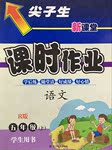题目内容
17.May I ask a question after class,Sir?_______,but not during my lunch break.( )
| A. | I'm sorry | B. | Anytime | C. | Certainly | D. | Go ahead |
分析 先生,我能在课后问你一个问题吗?
当然,但是不能在我午餐的时间.
解答 答案C.考查语言交际.I'm sorry对不起,抱歉;anytime任何时间;certainly当然,确定;go ahead去吧,做吧.A选项:对不起,但是不能在我的午餐时间.B选项:任何时候,但不能在我的午餐时间.C选项:当然,但不能再我午餐的时间.D选项:问吧,但不能在我的午餐时间.根据句意,选C.
点评 考查语言交际的题,弄清选项的意思,将选项分别代入题干进行确定,留意上下文语境.

练习册系列答案
 尖子生新课堂课时作业系列答案
尖子生新课堂课时作业系列答案 英才计划同步课时高效训练系列答案
英才计划同步课时高效训练系列答案
相关题目
5.After _____ seemed like an hour,he started off on his bike for _____ his dream leads him.( )
| A. | what,what | B. | what,where | C. | which,what | D. | that,where |
12.He was determined to accept the task _______ he had to face many challenges.( )
| A. | so that | B. | as long as | C. | as if | D. | even if |